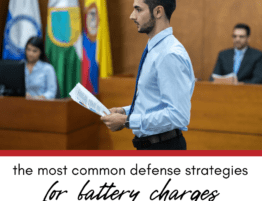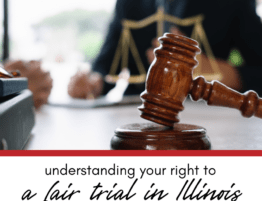
If you’ve been accused of a crime, you have the right to be represented by an attorney – and for many people, that’s the right path to take to get the best possible outcome. But what if you were black-out drunk when you committed a crime – can you simply let the court know that, submit proof, and then be found not guilty because you weren’t in control of your actions? Here’s what you need to know.
First things first: The court can absolutely find you guilty of a crime if you were drunk when you committed it. If they couldn’t, nobody would ever be prosecuted for drunk driving. That’s true whether you’re buzzed or black-out drunk. You are, for the most part, responsible for the crimes you commit after drinking – but there are exceptions.
Related: The honest truth about entrapment (it’s not what you think it is)
Being in an Intoxicated or Drugged Condition
Illinois law says “A person who is in an intoxicated or drugged condition is criminally responsible for conduct unless such condition is involuntarily produced and deprives him of substantial capacity either to appreciate the criminality of his conduct or to conform his conduct to the requirements of law.”
There are two key phrases there: involuntarily produced and deprives him of substantial capacity. You must meet both of those conditions in order to successfully use this type of defense to avoid criminal liability (in other words, to use this defense to escape being punished for committing the crime).
Involuntarily produced means that you didn’t get yourself drunk or drugged. That means someone else did it to you, without your consent or permission, and you couldn’t stop it from happening.
Related: What is an affirmative defense?
Deprives him (or her) of substantial capacity means that you were in such a condition that you couldn’t understand that what you were doing was a crime. It means you didn’t (or couldn’t) know what you were doing was against the law, or that you had no power to change your conduct.
This type of defense can work. For example, if your drink was drugged at a bar and you later lost the capacity to understand the criminality of your actions, the court may find that you’re not criminally responsible. However, you have to prove that these things happened to you; otherwise, you’ll be held liable just like anyone else would.
Related: Should you claim self-defense?
Do You Need to Talk to an Attorney?
If you’ve been accused of a crime, we may be able to help you – and don’t worry: It’s completely confidential. Call us at 847-920-4540 or fill out the form below to schedule your free, private consultation with an experienced and skilled Chicago criminal defense attorney now.
Contact Us
"*" indicates required fields









